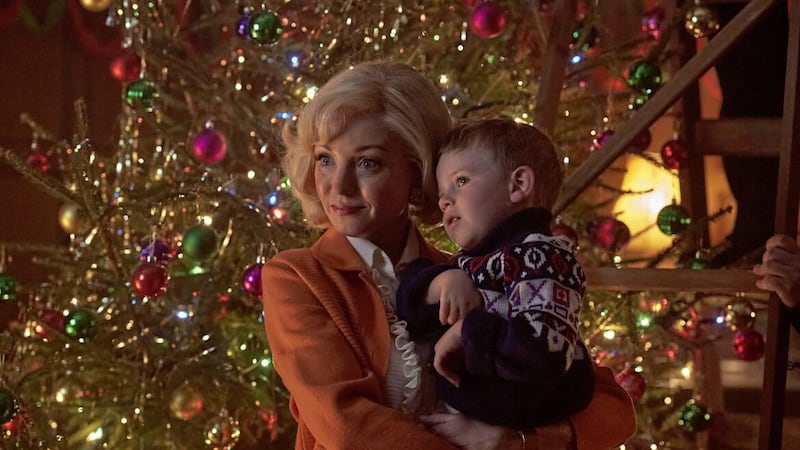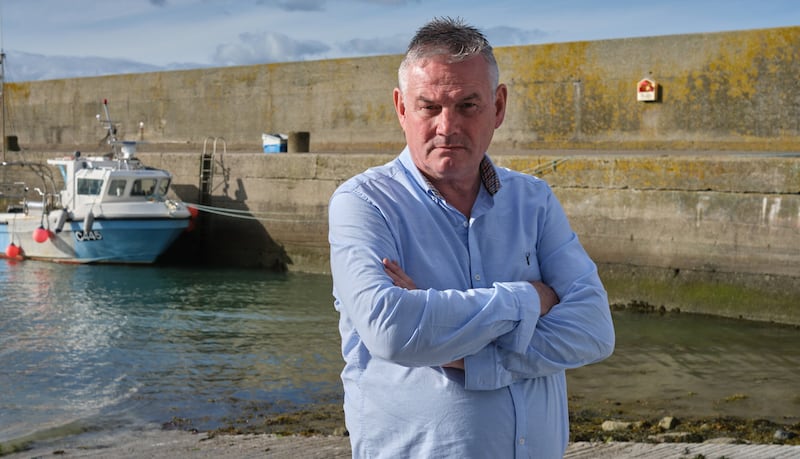
FOR generations, thousands of school children have been packed off to the Donegal Gaeltacht for a carefree summer to improve their Irish language skills, but it’s a rite of passage that is under threat. A shortage of host families or 'mná tí' is now threatening the future of this uniquely Irish institution.
As part of the new TG4 investigative current affairs series Iniúchadh TG4, I have been to Gaeltacht regions all over Ireland, including Donegal, to investigate the problem of the disappearing 'mná tí' – the women who look after students.
Their role is key to the successful running of many residential Irish Colleges, but for a variety of reasons, these hosts - who traditionally look after the students in their own homes - are leaving the sector in their droves.
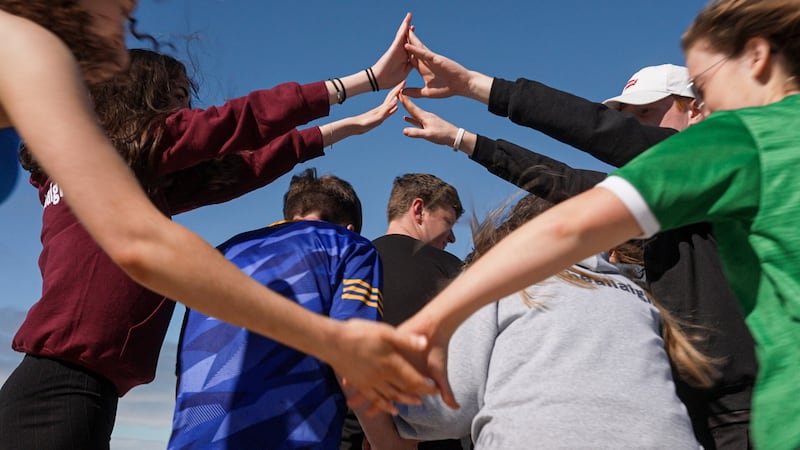
New figures revealed in tonight's documentary give an insight into the scale of the problem: since 2018, the number of host families in the Gaeltacht has fallen from 712 to 495 – that’s a reduction of 217, or 30 per cent in just four years.
If that rate of decline continues, many Irish Colleges will be in serious trouble.
The views of many in the sector are summed up by a stark assessment from the former manager of the island co-operative on Cape Clear Island in the Cork Gaeltacht, Máirtín Ó Méalóid.
He told me: “The biggest challenge we have [on Cape Clear] is to how to attract new people into the sector. I do not have the answers. It is a serious crisis. There is no getting away from it. There is no doubt that some colleges are in danger as a result.”
One of those in danger is Coláiste Aoidh Mhic Bhricne in Teelin or Teileann nestled at the foot of Slieve League in south-west Donegal. It’s been hosting students from across Ulster for generations, but is unable to re-open again this summer for a second consecutive year after it had to close during Covid.
Despite their best efforts, the college couldn’t find enough Irish-speaking families prepared to host students to allow it to re-open as a residential college this summer.
College principal Gearóid Ó Deoráin explains: “You cannot organise a residential college without a place for the students to stay. There are several reasons for the shortage of mná tí. We had families who had been hosting students for more than 40 years and they are more than entitled to take a break when they get older. Also, people’s outlooks changed after Covid.
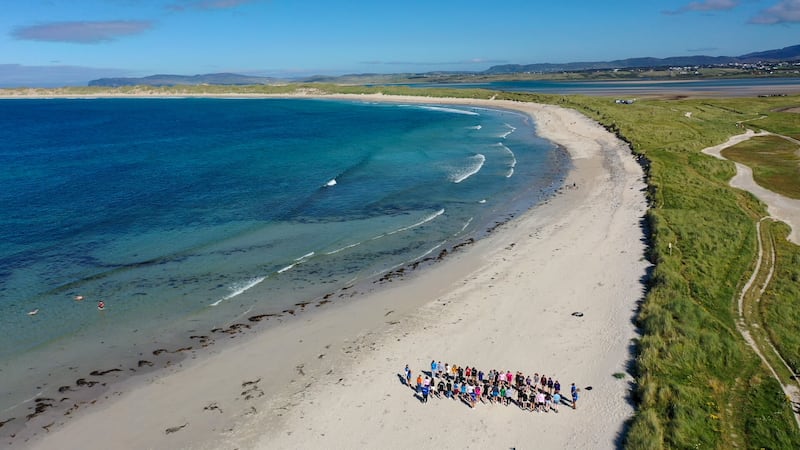
“I am not saying Teileann will not be a residential college again. We hope it will be open as a residential college again next year, and we are working in that direction. We are going down the route of trying to attract new host families to keep the students as we believe that is the best way for children to learn the language.”
The increasing age profile of 'mná tí', a move away from the sector into self-catering, long hours, the changing role of women, and insufficient pay for looking after the needs of children 24-hours a day for weeks on end are just some of the reasons given for the decline.
The problem of holding onto existing 'bean an tí’s' and recruiting new ones is being replicated across the country. In north Donegal, even Coláiste Bhríde in Rann na Feirste, one of the strongest colleges in Ulster has witnessed a fall in 'mná tí' post-Covid.

“We lost a third of our houses after Covid. We had 330 beds, but when we came back after Covid that had fallen to 220. So the big problem is that we had a very strong demand for places way above the numbers available,“ explains Frank Mór Ó Maoláin.
In terms of bean an tí numbers in Rann na Feirste, it now stands at 24, down from 30 before Covid - a 20 per cent fall. The college is now running more courses, but of a shorter duration to keep student numbers up.
The Gael-Linn run college in Machaire Rabhartaigh in north Donegal has also seen its bean an tí numbers fall in recent years, according to Sandra Níc Iomhair, one of the women who still hosts students there.
“We had 12 mná tí last year in Machaire Rabhartaigh. A couple of years ago we had 24. Some retired because they were over the age limit. Some just gave it up. Some were afraid to keep children after Covid and are now planning to take students in the meantime.”
The really frustrating thing for many of the colleges is that the shortage of host families means their courses are now heavily oversubscribed with long waiting lists. Thousands of children will be turned away from Irish Colleges this year, according to Maire Denvir from the bean an tí association, Comhchoiste Náisiúnta na gColaisti (CONCOS).
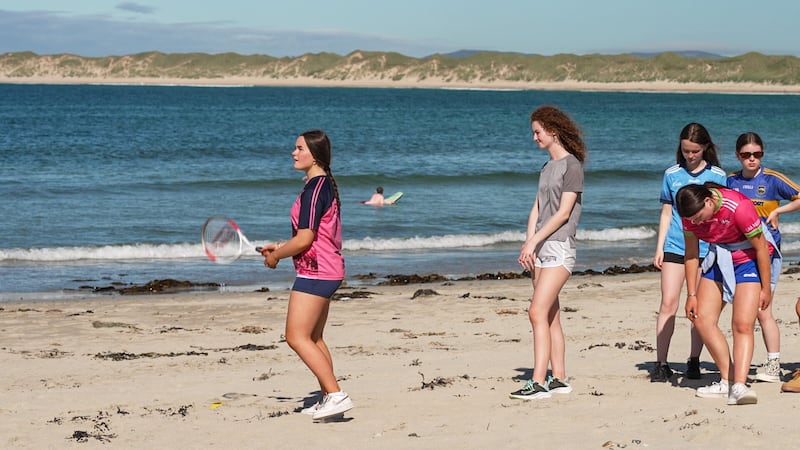
“When we came back after Covid, it amazed us the number of mná tí who had retired for one reason or another. In Connemara, there were a great deal more students looking for places. We had to turn a huge number of them away because there wasn’t the accommodation for them.”
Three colleges that Iniúchadh TG4 spoke to told us they had a combined waiting list of almost 2,000 students: Coláiste Chamuis in Co Calway (1,300), Coláiste Acla in Mayo (250) and Rann na Feirste in Donegal (400).
According to figures released by the Roinn Turasóireachta, Cultúir, Ealaíon, Gaeltachta, Spóirt agus Meán, the number of students and children attending Irish colleges has fallen by 1,616 since 2019.
But detailed figures gathered by CONCOS, which represents the majority of Irish Colleges, shows that there has been a steep fall in the number of core students in the 12-to-18 age group attending Irish colleges, with numbers down from 22,624 to 18,332 – a fall of 4,292 or 19 per cent in the past four years.
If the decline in the number of student hosts or 'mná tí' continues at the current rate, the entire institution of “summers in the Gaeltacht” is under threat. The shortage is already having an impact. The demand for places among students is strong, but some are being denied the chance to go there.
Unless the problem is addressed, the system will fail future generations of learners.
:: Tune in to Iniúchadh tonight at 9.30pm on TG4 to get the whole story


